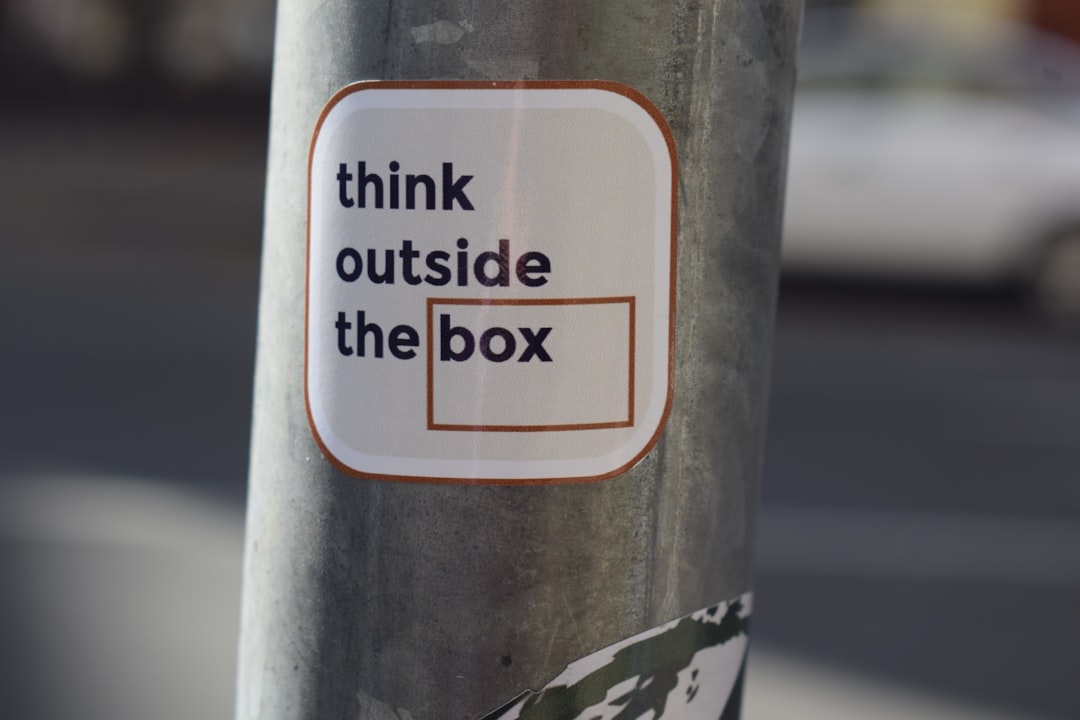Critical thinking is an essential skill that empowers you to analyze information, evaluate arguments, and make reasoned decisions. It involves a disciplined approach to thinking that requires you to question assumptions, seek clarity, and consider various perspectives. When you engage in critical thinking, you are not merely accepting information at face value; instead, you actively dissect it, looking for underlying meanings and implications.
This process allows you to navigate complex issues with greater confidence and clarity. To cultivate your critical thinking skills, you must first recognize the importance of being open-minded. This means being willing to entertain different viewpoints and challenge your own beliefs.
By doing so, you create a mental environment conducive to growth and understanding. Additionally, critical thinking encourages you to ask probing questions that delve deeper into the subject matter. What evidence supports this claim?
Are there alternative explanations? By consistently applying these techniques, you can enhance your ability to think critically and make more informed decisions.
Key Takeaways
- Critical thinking involves analyzing and evaluating information to make informed decisions.
- Recognizing biases and assumptions is essential for making objective and rational judgments.
- Evaluating evidence and information helps in forming well-founded conclusions and opinions.
- Developing problem-solving strategies is crucial for overcoming challenges and obstacles.
- Applying logic and reasoning enables sound and coherent decision-making.
Recognizing Biases and Assumptions
As you embark on your journey of critical thinking, one of the first hurdles you may encounter is the presence of biases and assumptions. These mental shortcuts can cloud your judgment and lead to flawed conclusions. Biases often stem from personal experiences, cultural influences, or societal norms, while assumptions are beliefs that you accept without questioning their validity.
Recognizing these elements in your thought process is crucial for developing a more objective perspective.
Are they based on solid evidence, or are they influenced by emotions or preconceived notions?
By examining your thought patterns, you can begin to uncover the biases that may be shaping your conclusions. Furthermore, consider how these biases might affect your interactions with others. By acknowledging your assumptions and striving for a more balanced viewpoint, you can foster more meaningful discussions and arrive at well-rounded conclusions.
Evaluating Evidence and Information

In an age where information is abundant yet often misleading, the ability to evaluate evidence is paramount. You must develop a keen eye for discerning credible sources from unreliable ones. This involves not only assessing the quality of the information presented but also understanding the context in which it was created.
When evaluating evidence, consider the author’s credentials, the publication’s reputation, and the methodology used in any research presented. Moreover, it is essential to differentiate between anecdotal evidence and empirical data. While personal stories can be compelling, they do not always provide a comprehensive view of an issue.
Instead, seek out studies and statistics that offer a broader perspective. By honing your skills in evaluating evidence, you will be better equipped to form well-founded opinions and make decisions based on reliable information.
Developing Problem-Solving Strategies
| Strategy | Definition | Example |
|---|---|---|
| Trial and Error | Trying different solutions until finding the right one | Attempting different combinations to solve a puzzle |
| Breaking Down the Problem | Dividing a complex problem into smaller, more manageable parts | Breaking a project into smaller tasks to tackle one at a time |
| Using Analogies | Applying a solution from a similar problem to the current one | Using a cooking technique to solve a chemistry problem |
| Seeking Help | Asking for assistance from others to gain new perspectives | Consulting a mentor or colleague for advice |
Problem-solving is a critical component of critical thinking that requires a systematic approach. When faced with a challenge, it is essential to break it down into manageable parts. Start by clearly defining the problem at hand.
What are the specific issues you need to address? Once you have a clear understanding of the problem, brainstorm potential solutions without judgment. This creative phase allows you to explore various avenues before narrowing down your options.
After generating possible solutions, evaluate each one based on its feasibility and potential impact. Consider the resources required for implementation and any potential obstacles you may encounter. By weighing the pros and cons of each option, you can make informed decisions that lead to effective problem resolution.
Remember that problem-solving is often an iterative process; be prepared to revisit your strategies as new information emerges or circumstances change.
Applying Logic and Reasoning
Logic and reasoning are foundational elements of critical thinking that enable you to construct coherent arguments and draw valid conclusions. When applying logic, it is essential to understand the principles of deductive and inductive reasoning. Deductive reasoning involves starting with a general premise and drawing specific conclusions from it, while inductive reasoning takes specific observations and formulates broader generalizations.
To enhance your logical reasoning skills, practice identifying logical fallacies in arguments presented by others or even in your own reasoning. Common fallacies include straw man arguments, slippery slope reasoning, and ad hominem attacks. By recognizing these pitfalls, you can refine your ability to construct sound arguments and avoid flawed reasoning in your decision-making processes.
Identifying and Analyzing Arguments

As you delve deeper into critical thinking, you will encounter various arguments in everyday life—whether in discussions with friends or articles in the media. Identifying these arguments requires careful listening and reading skills. Pay attention to the main claim being made and the supporting evidence provided.
Are the arguments well-structured? Do they rely on credible sources? By analyzing arguments critically, you can assess their validity and determine whether they warrant your agreement or skepticism.
Furthermore, consider the emotional appeals present in arguments. While emotions can be powerful motivators, they can also cloud judgment if not balanced with rational analysis. Strive to separate emotional responses from logical evaluation when assessing arguments.
This approach will help you develop a more nuanced understanding of complex issues and enable you to engage in constructive debates with others.
Making Informed and Ethical Decisions
Informed decision-making goes hand in hand with critical thinking. As you gather information and evaluate evidence, it is crucial to consider the ethical implications of your choices. Ask yourself how your decisions may impact others and whether they align with your values and principles.
Ethical decision-making requires a commitment to fairness, transparency, and accountability. To enhance your ethical decision-making skills, familiarize yourself with various ethical frameworks such as utilitarianism, deontology, and virtue ethics. Each framework offers a different perspective on how to approach moral dilemmas.
By understanding these concepts, you can better navigate complex situations where competing interests may be at play.
Improving Decision-Making Processes
Improving your decision-making processes involves creating a structured approach that minimizes biases and enhances clarity. Start by establishing clear criteria for evaluating options based on your goals and values. This framework will guide you in assessing potential solutions objectively rather than relying solely on intuition or emotion.
Additionally, consider involving others in your decision-making process when appropriate. Collaborating with diverse perspectives can provide valuable insights that you may not have considered on your own. Group discussions can also help challenge assumptions and encourage critical analysis of ideas.
By refining your decision-making processes through structure and collaboration, you will become more adept at navigating complex choices.
Enhancing Creative Thinking Skills
While critical thinking often emphasizes logic and analysis, creative thinking is equally important in problem-solving and decision-making. To enhance your creative thinking skills, engage in activities that stimulate your imagination—such as brainstorming sessions or mind mapping exercises. Allow yourself the freedom to explore unconventional ideas without fear of judgment.
Moreover, embrace curiosity as a driving force behind creativity. Ask questions that challenge the status quo and seek out new experiences that broaden your perspective. By fostering an environment where creativity thrives, you will be better equipped to generate innovative solutions to complex problems.
Overcoming Cognitive Biases and Fallacies
Cognitive biases are inherent tendencies that can distort your perception of reality and influence your decision-making processes. To overcome these biases, it is essential to cultivate self-awareness regarding how they manifest in your thinking. Common biases include confirmation bias (favoring information that confirms existing beliefs) and anchoring bias (relying too heavily on initial information).
To mitigate the effects of cognitive biases, actively seek out diverse viewpoints that challenge your assumptions. Engage in discussions with individuals who hold differing opinions and be open to reconsidering your stance based on new evidence or perspectives. By consciously working to overcome cognitive biases, you will enhance your critical thinking abilities and make more objective decisions.
Practicing Reflection and Self-Assessment
Reflection is a vital component of critical thinking that allows you to evaluate your thought processes and decision-making outcomes critically. Set aside time regularly to reflect on recent experiences—both successes and failures—and analyze what worked well and what could be improved upon. This practice fosters continuous learning and growth.
Self-assessment involves evaluating your strengths and weaknesses as a critical thinker. Identify areas where you excel—such as logical reasoning or creative problem-solving—and areas where you may need further development. By setting specific goals for improvement, you can create a roadmap for enhancing your critical thinking skills over time.
In conclusion, mastering critical thinking is an ongoing journey that requires dedication and practice. By understanding its principles, recognizing biases, evaluating evidence, developing problem-solving strategies, applying logic, analyzing arguments, making ethical decisions, improving processes, enhancing creativity, overcoming cognitive biases, and engaging in reflection, you will cultivate a robust set of skills that empower you to navigate life’s complexities with confidence and clarity.
Critical thinking is an essential skill in today’s rapidly changing world, enabling individuals to analyze information, make informed decisions, and solve complex problems. A related article that delves into the importance of critical thinking can be found on HeyDidYouKnowThis. This article explores various strategies to enhance critical thinking skills and their application in everyday life. For more insights, you can read the full article by visiting HeyDidYouKnowThis.
WATCH THIS! Don’t Believe Everything You Think — Your Brain Is A Master Trickster!
FAQs
What is critical thinking?
Critical thinking is the ability to analyze, evaluate, and interpret information in a logical and systematic manner. It involves questioning assumptions, considering different perspectives, and making informed decisions.
Why is critical thinking important?
Critical thinking is important because it helps individuals to make rational and well-informed decisions. It also enables people to solve problems effectively, think creatively, and communicate more clearly.
How can critical thinking be developed?
Critical thinking can be developed through practice and by actively engaging with complex issues. It involves asking questions, seeking out diverse sources of information, and being open to new ideas and perspectives.
What are the benefits of critical thinking?
The benefits of critical thinking include improved decision-making, enhanced problem-solving skills, better communication, and a deeper understanding of complex issues. It also helps individuals to think more independently and critically evaluate information.
